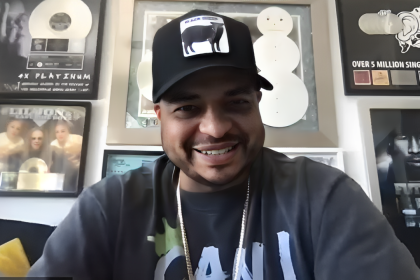You’ve found someone who seems amazing on paper. They’re successful, attentive when you’re together, and the chemistry is undeniable. But something feels… off. Conversations stay surface-level, they run hot and cold, and you’re constantly left wondering where you stand. Sound familiar? You might be dating someone who’s emotionally unavailable, and spotting the signs early could save you months or even years of frustration.
The disappearing act they’ve mastered
One minute they’re blowing up your phone, the next they’re ghost-town silent. This inconsistent communication isn’t just annoying—it’s a hallmark of emotional unavailability. When someone can’t maintain steady emotional presence, they create a pattern of closeness followed by distance that keeps you perpetually off-balance.
You notice they’re lightning-fast with responses when the conversation is light or playful, but suddenly develop “busy” periods when deeper topics arise. They might vanish for days after a particularly intimate conversation or meaningful experience, only to return acting as if nothing happened.
This hot-and-cold cycle isn’t just random behavior—it’s a protective mechanism. When emotional intimacy reaches a threshold that feels threatening to them, they instinctively create distance. The problem is that this threshold is usually right around the point where healthy relationships start to deepen and grow.
What makes this particularly confusing is that they often return with increased intensity, making you forget the disappearing act entirely. This creates an addictive cycle where the joy of their return overshadows the pain of their absence, keeping you hooked despite the emotional whiplash.
The conversation deflectors
Pay attention to what happens when you try to move beyond surface-level topics. Emotionally unavailable people are masters of the conversational sidestep. They’ll crack a joke, change the subject, check their phone, or suddenly remember an urgent task when conversations turn to feelings, the future, or anything requiring emotional vulnerability.
You might notice they have detailed, fascinating stories about work achievements or adventures but become vague and general when discussing how they felt during meaningful life experiences. Their emotional vocabulary often seems limited to basic descriptions like “good,” “fine,” or “whatever.”
This avoidance isn’t necessarily manipulative—many emotionally unavailable people genuinely struggle with accessing and expressing feelings. Their discomfort with emotional language isn’t something they’re doing to you but rather a reflection of their relationship with their own emotional world.
The red flag isn’t in having occasional difficulty expressing feelings—that’s human. The warning sign is in the consistent pattern of steering conversations away from emotional content altogether, creating relationships that stay permanently in the shallow end of the pool.
The independence extremist
Healthy relationships balance togetherness with independence, but emotionally unavailable people often swing dramatically toward extreme self-sufficiency. They pride themselves on “not needing anyone” and view normal emotional needs as weaknesses rather than human connection points.
You might hear them say things like “I’ve always been better off handling things myself” or “I don’t like to depend on others.” While independence is healthy, notice if they treat normal relationship interdependence as a threat or burden.
This excessive self-reliance shows up in daily behaviors. They make major life decisions without considering your input. They process significant emotional events entirely alone. They resist making adjustments to their routines to accommodate the relationship. Their life remains essentially unchanged by your presence in it.
The most telling sign is how they respond when you express needs or ask for support. Do they rise to the occasion, or do they make you feel burdensome for having normal relationship expectations? Emotionally unavailable people often respond to needs with defensiveness, minimization, or withdrawal rather than empathy and support.
The commitment wordsmith
Listen carefully to how they talk about the relationship status. Emotionally unavailable people often use language that creates wiggle room and avoids clear definition. They excel at keeping things in the gray area where they can enjoy the benefits of a relationship without fully claiming it.
You might hear vague references to “seeing where things go” months into dating, or notice they use terms like “hanging out” instead of “dating.” They might introduce you ambiguously as “my friend” even in contexts where “partner” would be appropriate. Future plans remain theoretical rather than concrete.
This linguistic slipperiness isn’t accidental. By avoiding clear relationship definitions, they protect themselves from the emotional responsibilities that come with commitment. The ambiguity serves as an escape hatch they can use if intimacy becomes too threatening.
What makes this particularly confusing is that their actions might sometimes suggest commitment even while their words avoid it. They might integrate you into their life in practical ways while emotionally keeping you at arm’s length, creating a maddening disconnect between what they do and what they’re willing to acknowledge.
The past that’s never past
Everyone has relationship history, but emotionally unavailable people often have unresolved past situations that continue to occupy emotional space. Whether it’s the ex they’re “just friends” with, the former relationship they’re still processing, or the on-again-off-again situation they can’t quite end, their emotional energy remains partially tied elsewhere.
The red flag isn’t simply having past relationships—it’s in how those relationships continue to function in their emotional life. Do they speak about exes with unprocessed anger or idealization rather than the neutral perspective that comes with genuine closure? Do they maintain boundaries with past partners that respect your current relationship?
Pay attention to whether they’ve actually processed past relationship lessons or just moved physically away from previous partners while carrying the emotional baggage forward. Emotional unavailability often stems from unhealed wounds that they’re protecting rather than addressing.
The crisis connection pattern
Ironically, emotionally unavailable people often show their most connected, present selves during crises or high-intensity situations. They might be incredibly supportive when you’re facing a health scare, job loss, or family emergency, only to retreat once the situation stabilizes.
This pattern creates confusion because their capacity for care and support is genuinely real—it just can’t be sustained in normal, everyday intimacy. Crisis situations provide emotional structure and clear roles that feel safer than the vulnerable uncertainty of day-to-day emotional connection.
Notice if they seem more comfortable when the relationship faces external challenges than when things are calm and the focus would naturally turn toward emotional deepening. This preference for connection during turbulence rather than peace reveals a comfort with intensity but discomfort with intimacy—a key distinction in emotional availability.
The mirror test that reveals everything
Here’s a simple but revealing test—how do they respond when you show vulnerability? When you share insecurities, express needs, or reveal less-than-perfect aspects of yourself, do they move toward you with similar openness or away from you with discomfort?
Emotional availability isn’t about never having walls—it’s about the willingness to lower them when someone else shows courage. If your vulnerability is consistently met with changes of subject, uncomfortable silence, unwanted advice, or subtle rejection, you’re likely facing emotional unavailability.
The most telling version of this test happens during conflict. When tensions arise, emotionally available people stay engaged in working through the discomfort, while unavailable people typically resort to shutting down, walking away, or attacking rather than navigating the emotional complexity together.
Breaking the unavailable pattern
If these signs are hitting close to home, you’re facing a crossroads. Emotional unavailability isn’t a simple character flaw but often a deep-seated protective response to past hurt. Some emotionally unavailable people can develop capacity for connection through self-awareness and often therapy, but that journey must be their choice, not your project.
The most important question isn’t whether they can change but whether they see their emotional unavailability as a problem worth addressing. Without that recognition and motivation, the pattern typically persists regardless of how perfectly you love them.
Remember that emotional unavailability doesn’t make someone a villain—many are wonderful, caring people in the ways they know how to be. The question is whether the connection they’re capable of offering is enough for the relationship you truly want and deserve.
















